ADOLESCENTS IN PUBLIC HOUSING
Adolescents in Public Housing
ADDRESSING PSYCHOLOGICAL AND BEHAVIORAL HEALTH
Von E. Nebbitt
 COLUMBIA UNIVERSITY PRESS NEW YORK
COLUMBIA UNIVERSITY PRESS NEW YORKCOLUMBIA UNIVERSITY PRESS
Publishers Since 1893
New York Chichester, West Sussex
cup.columbia.edu
Copyright 2015 Columbia University Press
All rights reserved
E-ISBN 978-0-231-51996-0
Library of Congress Cataloging-in-Publication Data
Nebbitt, Von E.
Adolescents in public housing : addressing psychological and behavioral health / Von E. Nebbitt.
pages cm
Includes bibliographical references and index.
ISBN 978-0-231-14858-0 (cloth : alk. paper) ISBN 978-0-231-51996-0 (ebook)
1. Youth with social disabilitiesUnited StatesPsychology.2. African American youthPsychology. 3. Public housingUnited States. I. Title.
HV1431.N47 2015
362.20835'0973dc23
2014045627
A Columbia University Press E-book.
CUP would be pleased to hear about your reading experience with this e-book at .
Cover design: Julia Kushnirsky
Cover image: Peter van Agtmael/Magnum Photos
References to Web sites (URLs) were accurate at the time of writing. Neither the author nor Columbia University Press is responsible for URLs that may have expired or changed since the manuscript was prepared.
TO MY PARENTS
CONTENTS
With Odis Johnson, Jr.
With Kathy Sanders-Phillips and Lisa R. Rawlings
With Taqi M. Tirmazi and Tarek Zidan
With Ajita M. Robinson
With Michael G. Vaughn, Margaret Lombe, and Stephen Tripodi
With Sharon F. Lambert and Crystal L. Barksdale
With Margaret Lombe
With Theda Rose and Michael Lindsey
With Carol S. Collard
With James Herbert Williams, Christopher A. Veeh, and David B. Miller
TO FULLY ACKNOWLEDGE THE CONTRIBUTIONS of all who made this volume possible would require perpetual effort. However, it would be remiss of me not to acknowledge those who provided me with inspiration, instructions, and guidance.
My brother Archie was among the first to inspire in me a love of learning. Thank you, Archie, for pushing me to think deeply and pursue higher education. I love you. I thank my mother, Ernestine Underwood, for her emotional support and encouragement. I must also thank my father, Milton Underwood, for encouraging and instilling in me a sense of perseverance and focus. I owe a huge thank you to Waldo Johnson, Margaret Lombe, Ajita Robinson, and James Herbert Williams. Without their guidance and support this project would not have been possible. I must also acknowledge my handball partner and friend Stephan Estrada, who, over casual conversation at the handball courts, coined the term inorganic communities.
My ability to see the big picture and recognize the unobvious connections between macro factors and the health of children in public housing is the direct result of my training in sociology at St. Louis University. I must also acknowledge the faculty at the Brown School of Social Work at Washington University in St. Louis for my ability to use advanced research methodological and analytic procedures to answer empirical research questions. They also provided me with excellent theoretical training and insights. I must also acknowledge the National Institute of Drug Abuse for supporting my continuous statistical training through the Child Health Disparity Center at Howard University. I am indebted to Howard University, where my ideas on how context matters matured and were nurtured. I would also like to acknowledge the Provosts Office at Howard University, the Silberman Foundation, and the National Institute on Minority Health and Health Disparity for supporting my professional development and sponsoring the study on which this volume is partially based.
I HAVE SPENT NEARLY TWENTY YEARS working in public housing, mostly as executive director of the St. Louis Housing Authority. Over the years there have been many changes in public housing in my city. Gone are the derelict, isolated warehouses of poverty that once dominated the landscape. They have been replaced with the mixed-income communities that blend with the surrounding neighborhoods and reestablish the traditional street patterns. These communities reconstruct neighborhoods and reconnect residents with the surrounding communities. They attempt to reduce the isolation of public housing communities by breaking down the physical barriers of isolation that shout to all, This is a public housing development.
Although the physical condition of public housing has dramatically improved, the challenges of working in public housing often make one reflect upon the reasons why there are not more effective methods to deal with the social issues that continue to plague many families that live in public housing. Even more perplexing is why some families have children who thrive and are very successful, whereas children in other families are destined to remain in poverty. I know a family with a single mother and three children who lived most of their lives in a severely distressed public housing development in a neighborhood with the highest level of poverty and crime in the city. Of the three children, one has an associates degree, the second has a bachelors degree and is pursuing a masters degree, and the third has a doctorate in pharmacological and physiological science. What makes these children thrive when their neighbor had a baby at the age of fifteen, never finished high school, and is destined to repeat the cycle of poverty?

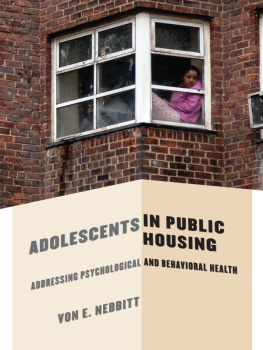


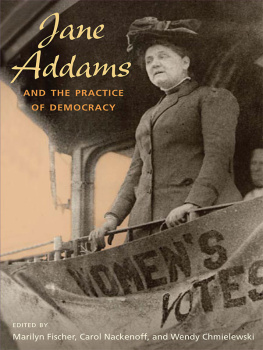
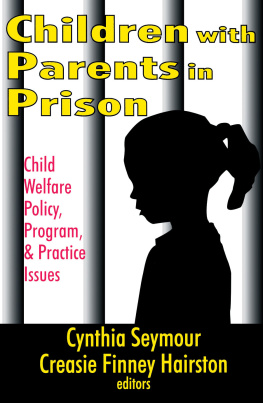

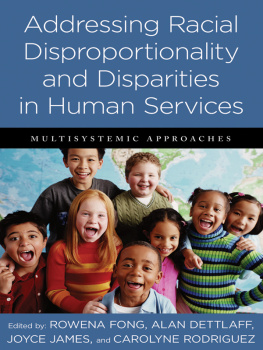

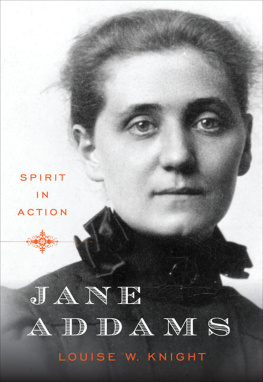
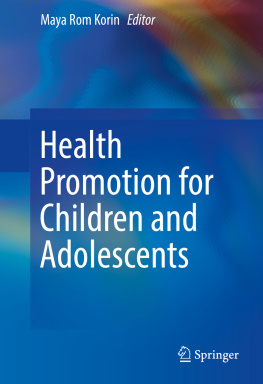
 COLUMBIA UNIVERSITY PRESS NEW YORK
COLUMBIA UNIVERSITY PRESS NEW YORK
